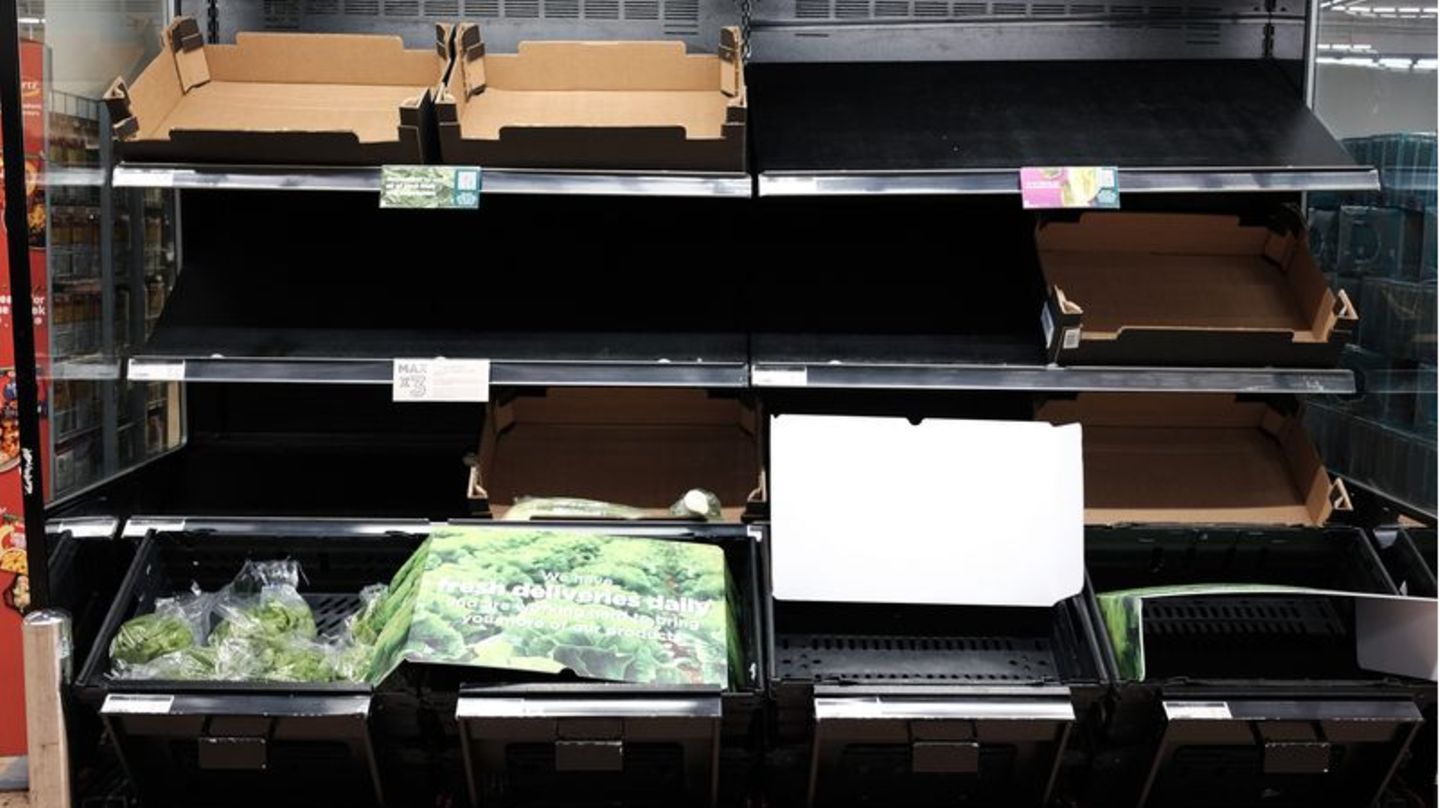Empty vegetable shelves are worrying consumers in the UK. The difficult situation is now having consequences for the first retail chains. Some items are strictly rationed.
Several supermarket chains in the UK, such as Aldi and Tesco, are restricting the sale of some fruit and vegetables due to supply problems. The market leader Tesco and Aldi only have three cucumbers and a strict limit on tomatoes and peppers per customer, as the BBC reported on Wednesday. It is a precautionary measure. The broadcaster Sky News reported that the largest British tomato grower APS Produce warned of shortages until at least the end of April.
UK: Supermarket chains are rationing fruit and vegetables
The British Farmers’ Association had previously warned of falling domestic food production. Recently, pictures of empty vegetable shelves made the rounds on social networks. The retailers blame extreme weather in Spain and North Africa, which destroyed large parts of the harvest. Other competitors such as Sainsbury’s and Lidl have not rationed so far.
According to a survey by the German Press Agency, there are no comparable bottlenecks in Germany so far. Germany’s largest food retailer Edeka emphasized: “We can continue to ensure that our markets are supplied with sufficient quantities.” The discount subsidiary Netto made a similar statement.
At Aldi it was said in the evening that the company sees the “current challenges” in the market: “Nevertheless, Aldi currently has no general availability problem with fruit and vegetables.” We are in close contact with suppliers and are observing current developments.
Range of offers could be reduced
The Rewe Group, to which the discounter Penny also belongs, emphasized: “There are enough tomatoes & Co. to buy at Rewe and Penny. Also in the future.” However, the supply disruptions in the procurement market would affect the range of supply and prices. The discounter Lidl assured: “Due to the long-standing partnerships with our suppliers, the supply of goods to the Lidl branches is basically guaranteed despite the current bottlenecks in the regions mentioned.”
Food prices in Great Britain have increased significantly, mainly because of Brexit. The companies incurred higher costs due to customs controls, which they passed on to consumers. In addition, the shortage of personnel worsened – there are significantly fewer harvest workers than before the EU exit. The Russian war against Ukraine also drove prices up sharply. Domestic farmers use greenhouses much less frequently due to higher energy prices. The UK imports much of its fresh food from the EU.
Great Britain
The long goodbye – Great Britain in pictures
Climate change is also causing problems for farmers. In the summer of 2022, for example, Great Britain suffered from a heat wave and in December from a long, hard frost. Because of the bad weather, carrots, parsnips, cabbage and cauliflower have been affected, said Tim O’Malley of British food producer Nationwide Produce. He expects further price increases.
Source: Stern




